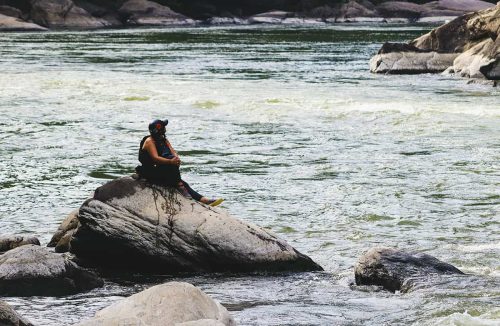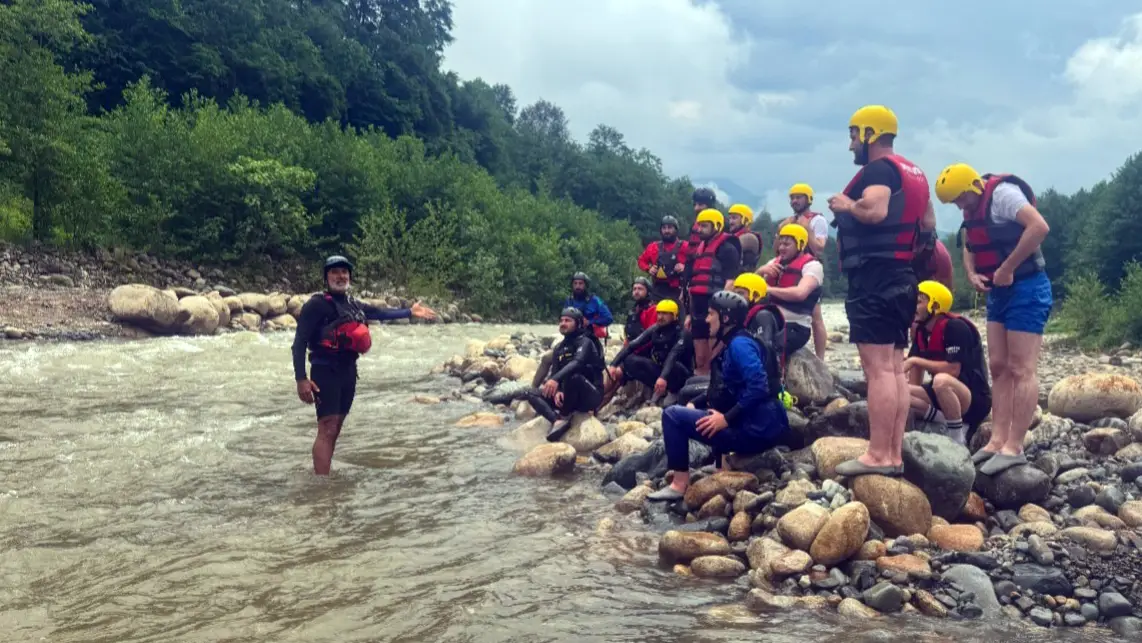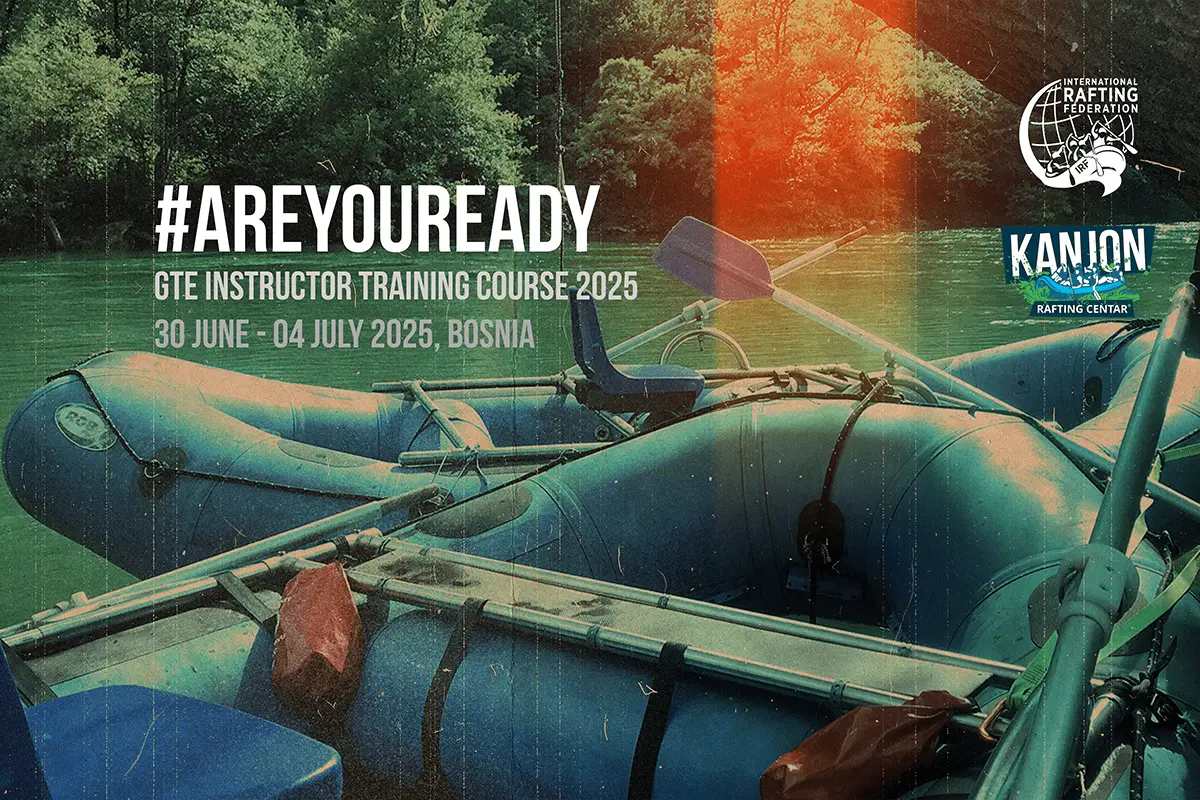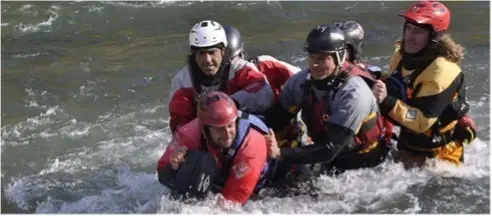Following on from our introduction last year, we catch up with Annalee Decker for her thoughts on what off water endeavours can bring to on water improvement.
Minding edges – by Annalee Decker

I’ve often been told the most difficult part of any adventure is the first step. However, through my wanderings in water and on land, I have come to strongly disagree with this notion. In my experience, the most arduous section of any journey is when you have reached the takeout.
I developed this difference of opinion following the end of my first season of raft guiding at the US National White Water Center (USNWC) in Charlotte, NC. After experiencing one of my favourite summers, I found my return to college life a bit lacklustre. I constantly felt without purpose and wondering “what’s next?”. To cope with these feelings, I reached out to fellow guides and learned my thoughts were not unique.
Any boater I asked agreed that there is an addictive nature to whitewater. Regardless of craft or crew, the sheer adrenalin of running rapids cleanly or creatively is a high that river folk will constantly chase. Additionally, the constant human interaction that accompanies the river is addictive in its own right. Watching similar expressions of wonder appear on the faces of fearless eight-year-olds and vintage badass seventy-year-olds alike is beyond gratifying.

The abrupt end to these daily experiences during the off-season in exchange for the real world is difficult. To fight these blues, I set out during every off-season to pursue as many new high adventure sports as possible. So far, I have taken up long distance running, rock climbing, surfing, scuba diving, whitewater kayaking, and, most recently, snowboarding. I can also be found taking far too many photos of friends and surroundings when not trying to defy death.
My off-season endeavours serve to remind me of the same two lessons that govern any high stakes activity: patience and perseverance. It was not until a recent snowboarding trip that I was able to articulate these universal principles and understand their pertinence to my favourite sport.
Prior to 2020, I had not been on a ski slope for a number of years. This fact did not stop me from participating in a spontaneous trip with two close friends just last December. I would love to say that as soon as I hit the first slope it all came rushing back to me and I shredded the whole day. In painful actuality, through many hard falls, I was harshly reminded that it takes patience to build a skill. Patience and no small dose of perseverance to stand back up and try again. Hit after hit after hit.
After a few laps, my friends reminded me that I had to mind the edges of my board to help better control myself. To their amusement and confusion, I got excited at the word “edges.” It was the key to turning around my day. In addition to their importance in board sports, edges are a key factor in the world of whitewater.

Specifically, minding edges can make or break your experience in a whitewater kayak. Armed with this epiphany, I decided if I reshaped my thinking of snowboarding being a foreign activity to relating it to my comfort zone, whitewater, I might be able to improve. I cannot say that I finished the trip as the next snowboarding all-star, but I can confidently say I made progress and felt a thrill I had been missing.
My small successes excited me on the long, cold drive home. It also caused me to reflect on my other high stakes hobbies in search of the same similarities. My findings surprised me. While the lessons of patience and perseverance presented themselves in different ways and at different times, nearly everything within the adventure sports world is built upon a strong base of these universal lessons. They also shape life in the aforementioned real world that guides are subjected to in the off-season. The real world is full of sharp edges. How you navigate them changes everything. My advice? Don’t panic.
Regarding rafting specifically, these truths are key for a successful trip for any guide. When first learning this trade, the new guide needs to be extremely patient with themselves or they will fail. As I explained in my recent IRF article, Wild Whitewater Woman, this industry is hard to enter and is only made more difficult if you are too tough on yourself. Be patient with your progression. When you hit inevitable roadblocks, take a deep breath and try again. Persevere. You will get there.

If whitewater is a drug then I am a hopeless addict. In all honesty, regardless of the time of year, I am never far from the riverbank. My mind constantly wanders back to reliving amazing memories provided by the river and the wonderful people with whom I have had the privilege to experience those thrills alongside. What breaks me out of my nostalgic loop is by placing myself in adventurous situations that make me uncomfortable. By patiently working through high-mileage running days, climbing a difficult route cleanly, or minding my edges on a snowboard in efforts to persevere to a new finish line, I am able to keep my love for whitewater alive no matter the season.
#AreYouReady to start minding edges?
The International Rafting Federation actively encourages women to become raft guides and/or raft racers. Details about guide training and assessments can be found here on our website.
#RaftersAreAwesome #StrongerTogether #oneloveoneriver #likeagirl #womenofwhitewater #RiverFamily #WeAreIRF




